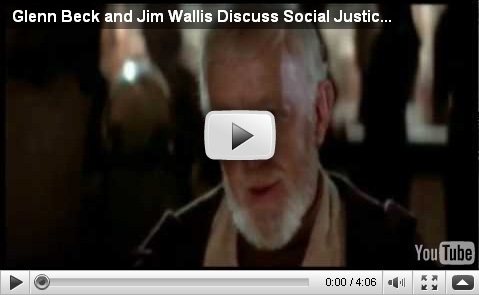holy week
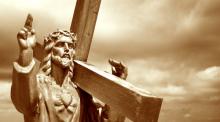
Last weekend – Easter – was a time where all Christians remember the tragic end of Jesus’ life, as well as the miraculous raising of Jesus the Christ from his death. The week prior to Jesus’ death – Holy Week – is one where Christians focus on Jesus’ arrival and entry into Jerusalem, the hub of Israeli and Jewish power, amid excited and adoring crowds. As we read through and remembered this tragic story, we heard and saw the excitement and adoration of the people quickly turn, resulting in a call by the people to kill – crucify! – this man they so enthusiastically welcomed. Not only do the people cry for his death, but they answer Pilate’s question by declaring let “His blood be on us and on our children” (Matt. 27:25). The multitude, in other words, embrace the responsibility for Jesus’ crucifixion, whereas Pilate, ironically, acts like a good Israelite seeking to separate himself from a deed that violates covenant justice (Gardner, 390). The result of the people’s eagerness, which was fed, we are told, by the chief priests and elders’ ability to persuade the multitude, lead to the death of Jesus on the cross.
My fear, however, as we remember the horrible and horrific event of the crucifixion, is that we have forgotten much of its significance, both historically in Jesus’ time and for us today. What we now call the “substitutionary atonement theory” has understood the cross primarily as the beginning of salvation, and not also as the culmination of a radical life lived within an Empire. This theory has tended to disconnect the life-path chosen by Jesus from the salvation attributed to the cross. The cross, as represented in the New Testament, is both an end and a beginning. It demonstrates the predictable end of life lived in service to the Kingdom of God within an Empire. It also invites us into a future in which the power of this life-ending cross becomes the power of a cross-initiated life.
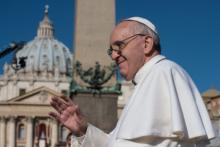
Pope Francis on Thursday washed the feet of 12 young inmates, including two girls and two Muslims, during a Maundy Thursday Mass at a youth detention center in Rome.
The Argentine pontiff, who has shown an eagerness to break with tradition in the two weeks since his election to the papacy on March 13, chose to celebrate the rite in the Casal del Marmo prison in northwest Rome, rather than in the traditional venue of the St. John Lateran Basilica.
Francis has repeatedly stated his desire to bring the papacy and the church closer to the poor and the marginalized.
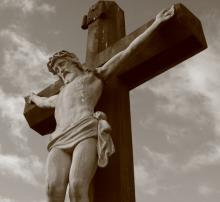
The first Christians confessed that Jesus is "God from God, light from light, true God from true God." Jesus is, they finally confessed after centuries of dispute, who the Gospels and the apostles plainly tell us: God without qualification. Bethlehem's baby boy grew to be the man from Nazareth, who is also from before time and forever the only begotten Son.
Jesus tells Philip that he and the Father are one; that if Philip has seen Jesus, then Philip has seen the Father. Paul tells the Colossians that Christ is the visible image of the unseen God. The Hebrews are taught by their apostle that Jesus bears the very stamp of God's nature.
If anything we think we knew about God before Jesus arrives in Mary's womb contradicts what we see and hear of Jesus in the Gospels, then we are the ones who are mistaken, the ones who weren't paying close enough attention before he came (yes, Jesus reveals the same relationship-initiating God of holy love we encounter in the pages of the Hebrew Bible); we are the ones who have, since his decades of extravagant humility among us as one of us, forgotten the Christ.
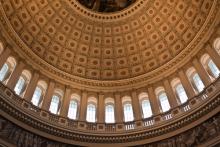
This week a large number of Americans are celebrating Holy Week, leading up to Easter Sunday. Churches will be packed with both the regulars as well as the once- or twice-a-year worshippers for the "Super Bowl of Sundays" to celebrate Christ’s victory over death and sin and his glorious resurrection.
In the midst of an exasperating and polarized political debate around the U.S. budget, our national and political leaders can learn valuable lessons from Holy Week. Whatever your faith background may be, we could all benefit from a greater commitment to the humility, shared sacrifice, and hope that Holy Week embodies. An extra dose of humility, sacrifice, and, ultimately, hope represent the balm that could bridge many of our ideological differences and resolve the current political impasse around the budget that has paralyzed our political system and divided the nation.
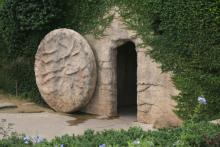
In Christianity’s passage through Holy Week to Easter Day, a moment of truth will arrive.
Every detail is well known, thoroughly studied, and dramatized by Hollywood and homespun pageants — and the familiar story will reach across the divide and touch, or try to touch, every person who is listening and watching.
Many will get it, especially if they live in circumstances where people get falsely accused by the self-righteous; where the weak and vulnerable get mistreated by the powerful; where physical suffering is a daily occurrence; where death seems like the only next option.
That audience could well comprise the bulk of humanity — those who endure poverty, starvation, and violence of epic proportions, those who live in more prosperous lands and yet are the oppressed, the ignored, the expendable.
For that audience, the Gospel message is profoundly good news.

During this Holy Week, Christians around the world turn inward to reflect on the mystery and miracle of the death and resurrection of our Lord, Jesus Christ. Those two surpassing events are more than good enough to occupy the mind and heart of every believer.
But they are not all that Jesus did in these eventful days. As any student of the scriptures will know, Jesus did not go quietly to the cross. Three days before his execution, he stormed the temple and challenged the seat of theocratic power in Jerusalem, condemning the pharisaic elite who "preach, but do not practice" and "tie up heavy burdens, hard to bear, and lay them on the people's shoulders." (Matt. 23:3-4) He accused as hypocrites leaders who make token offerings yet "have neglected the weightier matters of the law: justice and mercy and faithfulness … Inside they are full of greed and self-indulgence." (Matt. 23:23,25)
In his final teaching before the events of Maundy Thursday and Good Friday began, Jesus embraced those who are oppressed and cautioned his disciples that acts of love and mercy are the measure of a heart touched by grace. "For I was hungry and you gave me food, I was thirsty and you gave me drink, I was a stranger and you welcomed me, I was naked and you clothed me, I was sick and you visited me, I was in prison and you came to me … Truly, I say to you, as you did it to one of the least of these my brothers, you did it to me." (Matt. 25:35-40)
In honor of the occasion, Congress will close its doors and lawmakers will head home to be with their constituents for the Easter recess. If inside reports are to be trusted, they will leave Washington "armed with excuses" that explain away the latest fiscal fiasco, and the people will have little to say in reply. I pray it isn't so.
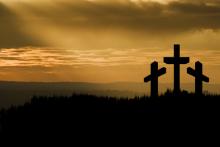
“Liturgical celebration is a re-entrance of the Church into the event, and this means not merely its ‘idea,’ but its living and concrete reality.”
—Fr. Alexander Schmemann
You and I bring our life experiences with us when we gather with other Christ followers for worship. Everything that has happened to us on our pilgrimage in this world accompanies us, in fact, wherever we go.
Our past is part of what makes us unique persons. What we have endured and felt and accomplished informs our conversations and often helps determines our actions in the present moment. This is what it means to be human.
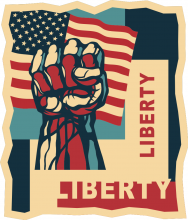
On Palm Sunday many will hear the Gospel of Luke’s perspective surrounding Jesus’ celebrated entry into Jerusalem (Luke 19:28-40). In hearing this well-known portion of the New Testament, we are often led to wonder how the same crowds that so graciously and enthusiastically welcomed Jesus would passionately and viciously call for his death just a few days later. In trying to comprehend the sudden and significant shift in public opinion, we recognize that the crowds did not swing their support independently, but rather, they were acting under the influential push of propaganda.
As Luke’s Gospel reminds us, in between Jesus’ entry into Jerusalem and the calls for his crucifixion, the “chief priests and the scribes” plotted to put Jesus to death (22:2). As these powerful elites were “afraid of the people”, they conspired in a power-protecting push to have Jesus humiliated, tortured, and brutally killed. And so, while Luke’s Gospel does not provide exact details into the strategies of the chief priests and scribes, their motivations appear to be clear, as they, and others within the ruling class, perceived Jesus as a risk and thus needed to ensure his quick and clear elimination. As a result, due to the influential influx of propaganda, combined with an overly complicit public, just a short time after Jesus was welcomed as a king he was sentenced to death as a criminal.
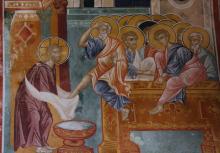
As we walk with Jesus ever closer to Good Friday, we recognize today as Maundy Thursday, commemorating the day that Jesus celebrated his last Passover meal — the Last Supper — with his disciples and washed their feet. Later that night, he would go with them to the Garden of Gethsemane, to wrestled with his humanity and the mission God the Father had called him to — to suffer and die on the cross at Golgatha the next day. Jesus asks his disciples to stay awake with him, to keep him company and join him in prayer. But they fall asleep, leaving Jesus alone in his dark night of the soul.
This is my body ... broken for you.
We've compiled a playlist of songs inspired by or that speak in some way to the Holy Week journey that brings us to Maundy Thursday and the great mandate from which the day takes its name: "If I, the Master and Teacher, have washed your feet, you must now wash each other's feet."
 There's much to contemplate this Holy Week, from Palm Sunday and Maundy Thursday to Good Friday and Resurrection Sunday. Many artists have traveled this path, creating sonic accompaniment for the varied emotions evoked during this sacred week.
There's much to contemplate this Holy Week, from Palm Sunday and Maundy Thursday to Good Friday and Resurrection Sunday. Many artists have traveled this path, creating sonic accompaniment for the varied emotions evoked during this sacred week.
Here are a few tracks that move us, and that we’ll have in heavy rotation throughout until Easter Sunday and beyond, including one of the more unusual Resurrection Day songs you've likely ever heard from the Yeshu Bakhti band Aradhna, pictured at right.

Holy Week and Jesus’ Ways for Peace
Palm Sunday/Passion Sunday and the week that follows — Holy Week — are times for Christians to remember and share the biblical stories of Jesus’ teachings and actions for peace. These stories encourage us to pray and work for peace, especially in light of those who are now threatening a new war with Iran. “Nine Years of War in Iraq: A Sojourners Retrospective” is a powerful reminder that churches need to do more.
Last year Sojourners posted a new hymn for Palm Sunday with peace themes, “Lord, What a Parade!” by Carolyn Winfrey Gillette.
This year the Black Mountain Presbyterian Church in North Carolina commissioned Carolyn to write a new hymn about Jesus’ nonviolent actions and compassion at the time of his arrest.
